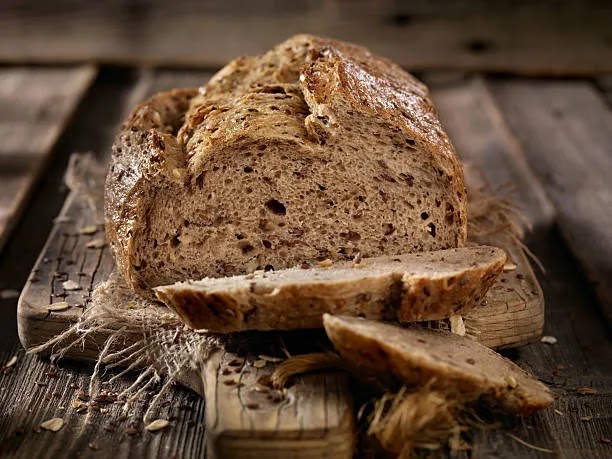These eating habits will enable you to live a healthier and
longer life.
As we become older, we want to keep in the most excellent physical and mental shape possible to live a healthy and long life. According to new research, while we can't always control everything life throws at us, we can manage how and what we eat, which is a significant aspect of longevity.
New research has found that the longevity diet would be an excellent preventative tool to help avoid morbidity and maintain health into old age, according to a recent study published in Cell. As a result, the longevity diet focuses on five eating behaviors that can help you live a long life. Continue reading to learn more about those eating habits.
1. Eat a lot of unprocessed carbs.
Both low carbohydrate consumption of less than 40% of energy and high carbohydrate consumption of more than 70% of energy increased mortality risk compared to moderate carbohydrate intake, according to a meta-analysis of 432,179 people.
The norm caloric longevity diet, on the other hand, is connected with a mid to high carbohydrate intake, minimal or shallow side effects, and an increased lifespan and healthspan by keeping your body weight constant by the energy introduced to your body equaling the energy wasted.
Foods that have been lightly processed from their natural state are known as unrefined sources. Whole grains like wheat bread, brown rice, and quinoa provide these nutrients.
2. Eat most of your protein from plant-based sources, like beans and nuts.
According to the study, replacing carbs with animal-derived proteins or lipids increased mortality risk by 18%. When plant-based proteins or lipids were substituted for carbohydrates, the risk was reduced by 18%.
The longevity diet also recommends a plant-based protein consumption that is minimal but sufficient. Regular consumption of pesco-vegetarian-derived proteins– vegetarian foods that include seafood–on the other hand, has few or no adverse side effects and increases lifespan and healthspan.
Research demonstrates that pesco-vegetarians have a lower risk of overall mortality than meat-eaters, as mentioned in the review. A vegan diet has also been linked to a lower incidence of cancer, hypertension, and diabetes when compared to meat-eaters.
3. Consume roughly 30% of your daily calories from plant-based lipids.
According to the Cleveland Clinic, the dietary reference intake (DRI) for fat in people is 20 percent to 35 percent of total calories. According to the longevity diet, fat accounts for roughly 30% of total energy, with the majority of this coming from plant-based and pro-longevity sources. Beans, almonds, chia seeds, and flax seeds are all excellent sources of plant-based energy consumption.
According to the Cell review, a recent study based on meta-analyses and data from the 2019 Global Burden of Disease study supports the longevity diet.
The evidence showed that switching from a typical Western diet—a modern-day style diet high in processed foods, red meat, high-fat dairy products, high-sugar foods, and pre-packaged foods—to a diet rich in legumes, whole grains, and nuts with less red and processed meat is linked to a longer life expectancy. If it began at the age of 20, life expectancy ranged from 10.7 years in girls to 13 years in males, with nearly eight years of improved life expectancy at the age of 60.
4. Eat within 11 to 12 hours of waking up.
Obesity, metabolic syndrome, and type 2 diabetes research, according to the review, would benefit from an 8-10 hour daily eating schedule. It could help with weight loss or correct metabolic problems already present.
More extended daily fasting periods, which include skipping breakfast, have been linked to an increased risk of death, which is especially significant in the case of cardiovascular disease. To minimize greater compliance challenges and adverse effects, it is advisable to have an eating time with an ideal window of 11 to 12 hours.
5. Begin fasting
Fasting has contributed to longevity in several ways. According to the review's authors, the longevity diet should be tailored to avoid malnutrition, especially in individuals over 65 years old, to prevent frailty and disorders caused by diminished bone or muscle mass or low blood cell counts. A 12- to 13-hour daily fasting period, which has been demonstrated to be safe, practicable, and successful in numerous studies, would be ideal for the longevity diet.
A Fasting Mimicking (FMD) diet was also highlighted in the review. A five-day cycle given to mice on a high-fat/calorie diet once a month reduced body fat, enhanced heart function, lowered cholesterol, and restored longevity to levels seen in mice on a conventional diet.
FMD cycles lasting four days had additional health benefits, including increased longevity, lower tumor incidence, and delayed cognitive decline, even when initiated in middle age.
An FMD every 3 to 4 months may also assist in lower risk factors for people at higher risk of disease, increasing their chances of living longer. According to the review, several research has looked into the role of FMD in cancer treatment.
A 36-patient feasibility study indicated that FMD combined with hormone therapy for breast cancer treatment was safe and reduced indicators and risk factors linked with cancer progression without compromising muscle function or bulk.






